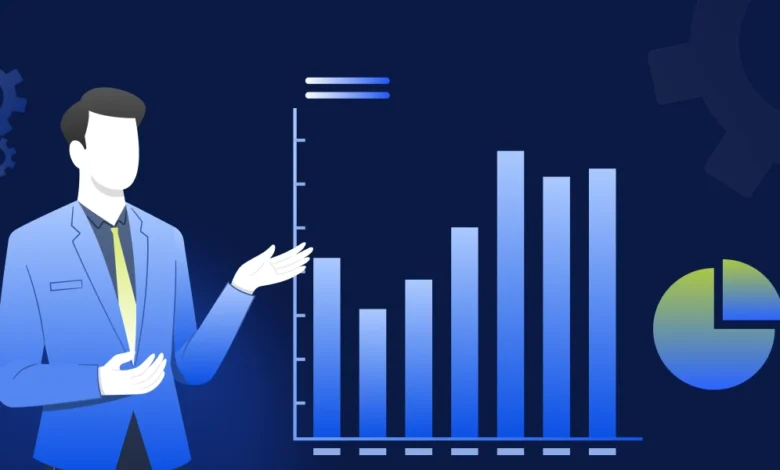Best Statistical Skills Every Businessperson Must Have

In today’s data-driven world, businesspeople need to wield statistics like a superpower. Whether you are running a startup, managing a team, or pitching to investors, understanding data can make or break your success. Stats help you spot trends, make smart decisions, and back up your ideas with hard numbers. From analyzing sales figures to forecasting growth, these skills are non-negotiable for staying ahead in business. You do not need to be a math wizard, but knowing how to use data effectively is key. Resources like AceMyHomework can sharpen your stats game with expert guidance. Here are the must-have statistical skills every businessperson needs to thrive in a competitive market, ensuring you can turn numbers into strategies that drive results.
Data Collection and Sampling
Good business decisions start with good data. Knowing how to collect and sample data properly ensures your insights are reliable. You need to understand how to design surveys, pick representative samples, and avoid biases that skew results. For example, if you are studying customer preferences, a random sample is better than asking only your loyal clients. Platforms like AceMyHomework can teach you sampling techniques through stats practice. You also need to spot when data is incomplete or flawed, like missing survey responses. This skill helps you gather accurate info for market research or sales analysis. In business, bad data leads to bad calls, so mastering collection and sampling saves you from costly mistakes. By getting this right, you will build a solid foundation for every data-driven decision, from pricing strategies to product launches.
Descriptive Statistics for Insights
Descriptive statistics help you summarize data in a way that makes sense. Think means, medians, and standard deviations, these give you a quick snapshot of your business’s performance. For instance, knowing the average customer spend or the range of sales across stores can guide your strategy. Tools like Excel or StatCrunch make this easier, and Homework Helper can clarify how to apply these metrics. You need to know which measure to use, like when a median is better than a mean for skewed data. This skill lets you spot trends, like which products are hot or which regions lag. Clear summaries also make it easier to pitch ideas to stakeholders. By mastering descriptive stats, you will turn raw numbers into actionable insights that drive smarter business moves and impress your team or investors.
Inferential Statistics for Predictions
Inferential statistics let you make predictions based on data samples. Want to know if a new marketing campaign will boost sales across all stores? Techniques like hypothesis testing or confidence intervals can tell you. This skill is crucial for forecasting trends or testing business ideas without surveying every customer. Resources like AceMyHomework can guide you through tools like t-tests or regressions. You need to understand p-values and significance to know when results are trustworthy. In business, this means making informed calls, like whether to expand or tweak pricing, based on solid evidence. Inferential stats also help you avoid jumping to conclusions from small datasets. By mastering this, you will predict outcomes with confidence, giving you an edge in planning and strategy, whether you are launching a product or pitching a new venture to investors.
Data Visualization for Impact
Numbers alone do not persuade, visuals do. Creating clear charts, like bar graphs or scatterplots, makes your data pop for clients, bosses, or investors. You need to know which visual fits, pie charts for proportions, line graphs for trends. Tools like StatCrunch or Tableau, supported by Homework Helper, can help you craft sharp visuals. Practice spotting misleading charts, like those with skewed axes, to ensure your work is honest. This skill is key for presenting sales data or market trends in a way that grabs attention and drives decisions. Good visuals also simplify complex stats for non-experts, making your pitches clearer. By mastering data visualization, you will communicate insights effectively, whether you are reporting to your team or convincing stakeholders to back your next big business move with confidence.
Probability for Risk Assessment
Business is full of risks, and probability helps you weigh them. Understanding concepts like expected value or conditional probability lets you assess the odds of success, whether it is launching a product or investing in a campaign. For example, what is the chance a new store location will profit based on market data? Platforms like AceMyHomework can clarify probability problems with real-world applications. You need to calculate risks accurately to avoid costly missteps, like overstocking inventory. This skill also helps you prioritize opportunities, like choosing a campaign with higher payoff odds. In business, gut feelings are not enough, probability gives you hard numbers to back your decisions. By mastering this, you will navigate uncertainties smarter, making calculated moves that minimize losses and boost your chances of success in a competitive market.
Regression Analysis for Relationships
Regression analysis is your go-to for spotting relationships in data, like how advertising spend affects sales or how pricing impacts demand. You need to know how to run and interpret regressions, whether simple linear or multiple, to uncover these links. Resources like Homework Helper can guide you through complex regression projects. Understand coefficients and R-squared values to gauge how strong relationships are. This skill is huge for making data-driven decisions, like optimizing marketing budgets. In business, it helps you predict outcomes and fine-tune strategies based on evidence, not guesses. You also need to check for issues like multicollinearity to ensure your results hold up. By mastering regression, you will uncover insights that drive smarter business moves, whether you are analyzing customer behavior or planning investments, giving you a competitive edge in any data-driven industry.
Statistical Software Proficiency
Modern business relies on tools like Excel, SPSS, or R to crunch data fast. Knowing how to use these programs is a must for any businessperson. You need to input data, run analyses like ANOVAs, and create visuals without sweating. Platforms like Homework Helper can help you master software for stats-heavy tasks. Practice tasks like importing datasets or generating reports to get fluent. This skill saves time and reduces errors, letting you focus on strategy, not calculations. It is also a resume booster, as employers love data-savvy pros. Whether you are forecasting sales or analyzing customer feedback, software proficiency makes you efficient and reliable. By getting comfortable with these tools, you will handle complex data tasks with ease, making you a go-to person for data-driven decisions in your business or future career.
Critical Thinking for Data Decisions
Stats is not just math, it is about making smart calls based on data. Critical thinking lets you question results, like whether a sales spike is real or just noise. You need to evaluate data quality, spot biases, and choose the right statistical method for the job. Resources like AceMyHomework can sharpen your ability to analyze stats problems critically. Practice asking, “Does this make sense?” or “What else could explain this?” This skill helps you avoid bad decisions, like acting on flawed data. In business, it means crafting strategies that hold up under scrutiny, whether you are pitching to investors or setting prices. Critical thinking also makes you better at spotting trends or risks others miss. By honing this, you will turn data into powerful insights, driving smarter business moves and standing out as a sharp, reliable leader.




